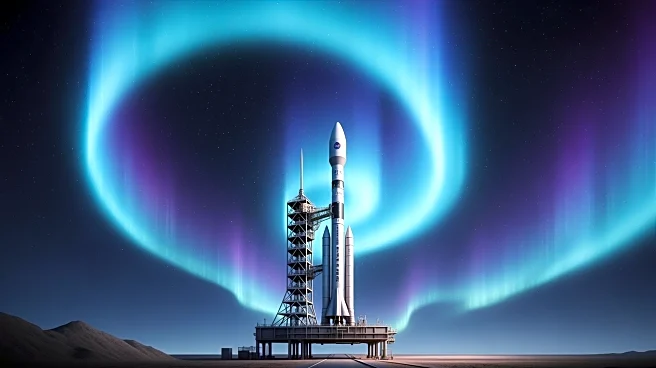What's Happening?
Blue Origin has postponed the second launch of its New Glenn rocket due to increased solar activity affecting the ESCAPADE spacecraft, a Mars-bound mission for NASA. The launch was originally scheduled
to take place from Cape Canaveral, Florida, but was delayed just hours before the planned liftoff. This decision follows multiple previous delays, including weather concerns and technical issues. The New Glenn rocket, which had a successful demonstration mission in January, is now carrying its first commercial payload, prompting Blue Origin to exercise caution.
Why It's Important?
The delay of the New Glenn launch underscores the challenges faced by space companies in dealing with unpredictable solar activity, which can impact spacecraft operations. This postponement affects NASA's Mars mission, highlighting the dependency on commercial space companies for scientific exploration. The delay also reflects the growing complexity of space missions as private companies like Blue Origin take on more significant roles in carrying payloads for government agencies. The situation may influence future scheduling and risk assessments for space missions.
What's Next?
Blue Origin has not yet announced a new launch date for the New Glenn rocket. The company will likely continue to monitor solar activity and other environmental factors to ensure a safe launch. Stakeholders, including NASA and other commercial partners, will be closely watching for updates. The delay may prompt discussions on improving predictive models for solar activity to minimize disruptions in future space missions.










